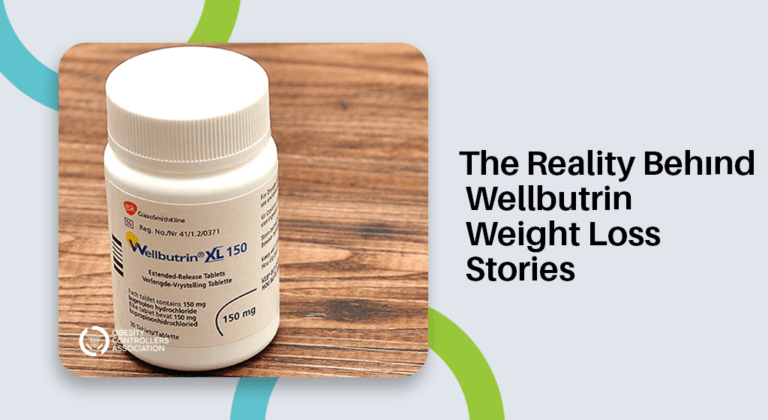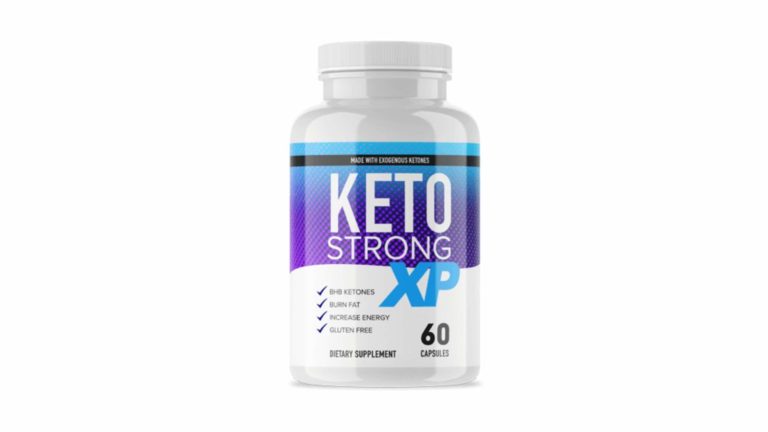Does Sweating Help You Lose Weight? Facts To Be Noted

Does sweating help you lose weight?- This is a very common question that is generated in every person who considers their body fitness.
Does Sweating Help You Lose Weight? How and Is It Good for You?
Sweating or perspiring is the thermoregulation process in the body which we dissipate or get rid of excess body heat as sweat. Sweat is produced from the body if the skin becomes exposed to overheat, physical activity, or even due to certain medical conditions. Sweating is common in both humans and animals and is vital in regulating the temperature of the body.

The modern lifestyle includes shredding sweat in the gym to reverse weight gain and people worldwide practice jogging, running, calisthenics, strength exercises, and a gym workout to burn calories by shredding sweat. Does sweating cause weight loss?
How sweat is produced in the body?
Sweat is produced from sweat glands which are called tubular structures crucial for regulating the temperature of the body. Sweat glands in the body are of two kinds eccrine, apocrine and apocrine glands. eccrine sweat glands are smaller sweat glands that are coiled tubular glands that discharge their secretions directly onto the surface of the skin. Apocrine sweat glands are coiled tubular glands that discharge their secretions in the canals of hair follicles.

Thus sweating is the release of liquid from body sweat glands. It contains salt and other components which instantly cool down your body.
Sweat mostly contains water and it has tiny amounts of other chemicals like ammonia, salts, and sugar. Ammonia is formed in sweat as a process of being leftover when protein is broken down in the body. Being a thermoregulatory response to control the body temperature, the excessive heat stimuli the skin receptors to produce sweat to cool down the rising body temperature. Face, armpits, palms of the hands, and soles of the feet. Sweet is virtually odorless. The body odor occurs when your sweat mixes with bacteria on the surface of the skin and makes an unpleasant odor. The bacteria in the skin rapidly grows while mixing with the sweat and forms body odor.

Sweating differs from person to person and can be caused by various factors People normally sweat while undergoing physical activity or workout or are exposed to excessive heat, but certain physical conditions and their side effects can promote excessive sweating which can adversely affect the health of your body.
Is sweating good for the body?
From a physiological perspective, sweating is natural and is good for the body. Sweating cools down the temperature of the body and lack of sweating can increase the body temperature. There will be certain situations where our body produces excessive sweat which may be the side effect of a health concern or can be the reaction of certain medications.

Sleep deprivation is a major cause of excessive sweating. Hormonal imbalance is also a cause of excessive sweating. It excessive sweating has no underlying medical cause it is called primary hyperhidrosis. Hyperhidrosis can result as a reaction to being exposed to heat or undergoing physical activity. In most cases, hyperhidrosis is partly hereditary and does not have major health threats.
Secondary hyperhidrosis is the condition where excessive sweat is produced by the sweat glands due to a major health concern. It can cause dehydration, fatigue, and stress. There will be various health concerns that cause excessive sweating that can affect your body negatively.

Health concerns that cause excessive sweating
Sweating is natural and considered healthy. But excessive sweating can also be caused by an underlying health condition that can adversely affect you. Excessive sweating due to medical conditions is unhealthy and does not promote weight loss and it adversely affects the person’s general health.
- Acromegaly: It is a disorder that is caused by the excessive production of growth hormones(GH) produced from the purgatory glands. Some people with acromegaly may have an increased metabolic rate, excessive sweating (hyperhidrosis), or increased production of oil (sebum) by the sebaceous glands in the skin, resulting in abnormally oily skin.
- Malaria: The parasites grow and multiply in the red blood cells. At regular intervals, the infected blood cells burst, releasing more parasites into the blood. Infected blood cells usually burst every 48-72 hours. Each time they burst, you’ll have about of fever, chills, and sweating. Malaria causes other severe symptoms and signs which have long-term side effects. Signs and symptoms can include muscle pain, fatigue, shivering, night sweats, rapid heart rate, nausea, mild jaundice, vomiting, and diarrhea.
- Diabetic hypoglycemia: Excessive hypoglycemia stimulated hunger hormones as well as increases heart rate. Excess glucose can damage the nerve anywhere in the body, but if it occurs near sweat glands, it can cause them to stop working correctly. This can cause insufficient sweating, or excessive sweating, depending on the type of damage.
- Fever: Excessive sweating is regulated in the body during fever and it can be a reaction to certain medications which are used to reverse fever.
- Hyperthyroidism: Hyperthyroidism increases the body’s sensitivity to heat and excessive sweating as increases the heart rate and hunger which can promote excessive sweating.
- Hormonal imbalance: Hormonal imbalance can cause weight gain, muscle fatigue, and excessive sweating. Hormonal imbalance can severe various health issues.
- Lymphoma: Lymphoma can cause excessive sweating during the night. Lymphoma can also affect sweating in the daytime.
- Leukemia: Night sweats are a common side effect for leukemia patients. Excessive sweating can also be a side effect of chemotherapy. When you have night sweats, you wake up in the middle of the night soaked with sweat, even under moderate room temperature.
- Various infections: However, infections caused by germs mostly bacterial infections, such as inflammation of the heart valves (infective endocarditis), inflammation within your bones (osteomyelitis), and abscesses, all may result in excessive sweating at the night.
- Side effects of medications: Insulin, glyburide (Glynase), glipizide (Glucotrol), and pioglitazone (Actos) are common medications that may cause sweating. It is due to alterations in blood sugar with these medications, sweating is a reported side effect.
Sweating and fitness
After a long work schedule, people do an intense workout to burn calories by shredding sweat. The weight training exercise, running, calisthenics, jogging, Bikram yoga, or an hour-long intense gym workout can make you intensely sweat.
Does Sweating help you lose weight? Are calories are burned sufficiently by sweating it out?

Sweat can be depended on various things, if the person wants to calculate the effect of the workout from one day to the next using a measurement scale of power, distance and meter benefits you in calculating the amount of burned calories. The sweat rate differs from person to person and can change over time.
Even during workouts people who have normal BMI levels sweat more than those who have less or excess BMI levels. People with healthy BMI levels have balanced hormone levels and will not be prone to any health issues. It is calculated that during an exercise in a temperate atmosphere the average person will shreds out 1.5 to 2 liters of fluids through the body. But sweating alone cannot be considered to be a sign of burning calories and if you work out hard and consistently enough to sweat, you burn calories In the process.
Researchers and health experts suggest that regular exercise in any form can help you lose weight. But the effectiveness of workouts can’t be measured with the amount of sweat your body produced. The body burns calories while sweating out but the dripping out sweat is not a measurement of calories.

Sweating and weight loss
Sweating and weight loss doesn’t go hand in hand. But sweating out during an intense workout consistently can burn calories. To do a quality workout that can benefit you in burning calories and build muscles you have to replace the body fluid you lost during the workout. The liquid thus consumed will normalize your rising heart rate due to excessive sweating that makes you slow down during the activity. Avoiding drinking water during workouts doesn’t benefit weight loss.
During an intense physical workout, a person can lose approximately 1-2 liters of sweat. A liter of sweat weighs 2.2 lbs, so it is possible to lose 2.2 lbs of weight per hour. But what is lost is mostly the water weight and it will be soon gained when he rehydrates after the workout.

Burning calories and sweating are not directly connected. The person loses weight by exercise and sweat and loses calories. But you won’t lose calories whenever you sweat. Lying on a beach on a hot day sweating doesn’t burn calories or promote weight loss. What you lose is just the water from the body which will be restored once you rehydrate.
Sweating can be induced by nausea, fever, and nervousness. You may sweat excessively in your first public speaking or while talking seriously to your employer. It can’t be meant to burn calories and is not considered as weight loss.
Boxers and MMA fighters hard to lose their weight before the official weigh-in a day before the fight. Their mode of training is intense to a level as they even lose 10 lbs in a day. But just before the bout they regain all the gains right back from food ad liquids. But these severe weight fluctuations are dangerous.
People are familiar with saunas, where a person sits inside a steam box or they wear PVC sweatsuits to promote weight loss. Bikram yoga is very popular in many developed and developing countries and it is a yoga program practiced under 105° Fahrenheit room temperature. But what causes is the weight loss through water which will be regained soon once you eat or drink.
Regular exercise will burn additional calories if the person sweats more or less. The amount of sweat during exercise or workout is not an indication of exactly how many calories you burned. The amount of sweat indicates how hot you have gotten during the bout of exercise.

The person may look drenched after exercise but it’s not an indication that you burned truckloads of calories.
Final Verdict
After reading on the topic- Does sweating help you lose weight? you might have come to a conclusion. Sweating is the process by which the body adapts to get rid of excessive body heat. Body heat can rise due to atmospheric temperature or the result of a workout. But excessive sweating can be potentially a dangerous situation, especially if the condition is not treated. Excessive sweating can be the side effect of a major health concern or certain medications.

The number of fluids lost due to excessive sweating can lead to dehydration, dizziness, fatigue, heart stroke, and certain cardiovascular conditions. Excessive sweat can make you lose a lot of electrolytes which is dangerous and even leads to kidney diseases. Excessive sweating during dehydration slows down the use of fat as a fuel and inhibits weight loss. In this process, sweating works against the body’s efficacy to lose excess body weight.
Sweat is the reaction of the skin to cools down the body when exposed to heat or an increase in body temperature. It is believed that exercise makes you sweat thus burning calories. But the truth is contrary to what you believe. Weight loss and burning calories don’t work synergistically in various situations. Sweating doesn’t body fat. Its components are mostly water and also contain tiny amounts of ammonia, salts, and sugars.
Also, read Keto Strong Reviews
While you exercise it’s not the calories or fats that are dripping down from the body. The body can cool down the heat produced in your body. If you check your weight before after an intense workout you can find a decrease in your weight. But it doesn’t mention the calories you burned, it indicates the amount of water you lost from your body. The lost pounds will be gained immediately after a workout.
Remember sweat is not a measurement for calories and it differs from person to person and can change over time. Working out consistently in the gym can benefit your hard work and make you burn calories. Sweat is healthy and normal and the body can cool down the rising body temperature.
But sweating can’t be considered as the number of calories you burn. It varies from person to person and is influenced by various health and environmental-related factors.





